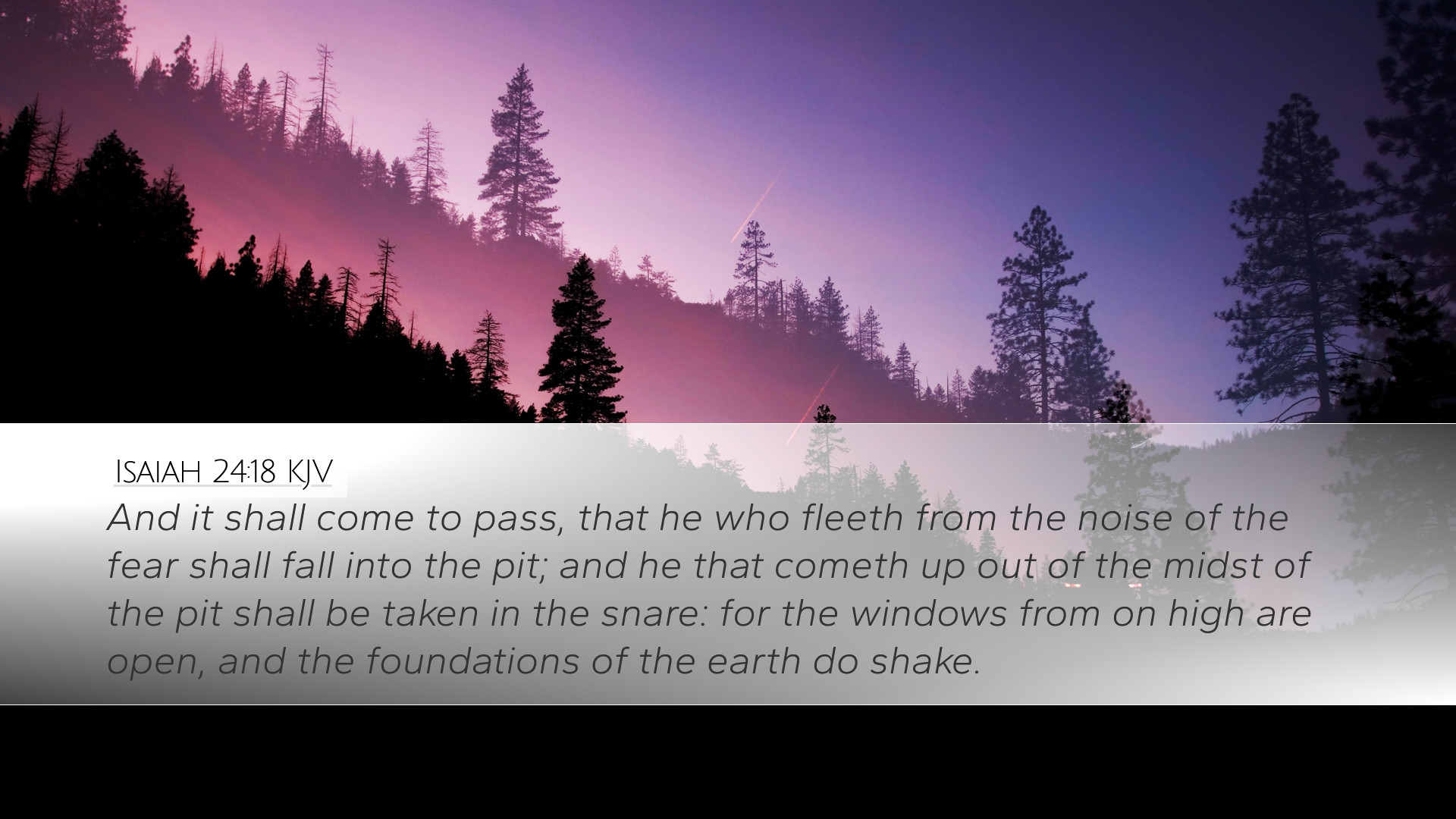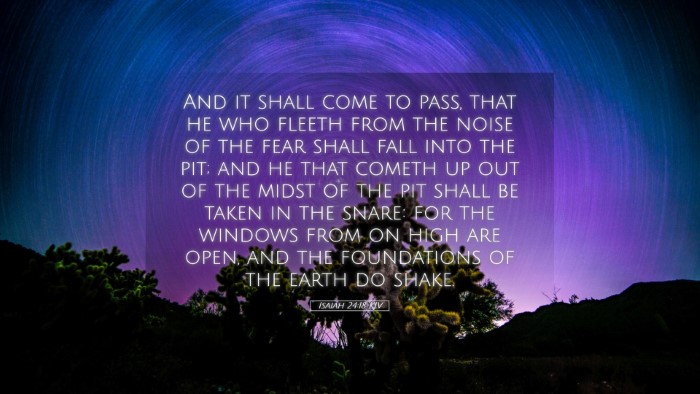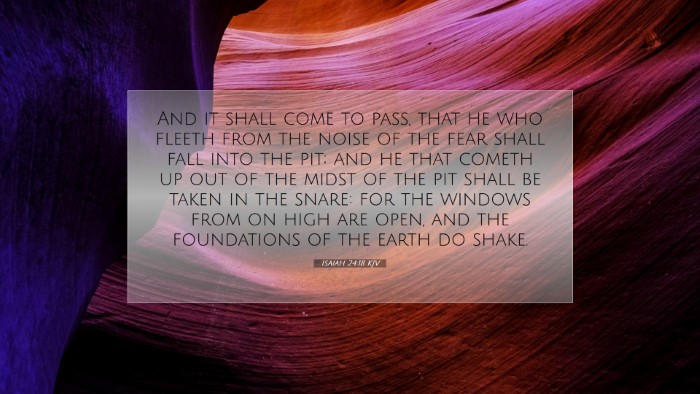Commentary on Isaiah 24:18
Verse: "And it shall come to pass, that he who fleeth from the noise of the fear shall fall into the pit; and he that cometh up out of the midst of the pit shall be taken in the snare: for the windows from on high are open, and the foundations of the earth do shake."
Introduction
This passage from Isaiah 24:18 is a reflection of God's judgment upon the earth, illustrating the severity of divine retribution against sin and the inevitable consequences of human actions. In this commentary, we will draw insights from esteemed public domain commentators, such as Matthew Henry, Adam Clarke, and Albert Barnes, providing a comprehensive analysis of the verse.
Contextual Overview
Isaiah 24 marks a pivotal moment in the book; it is often referred to as the "Apocalypse of Isaiah". The chapter details a graphic depiction of cosmic and terrestrial upheaval, attributable to divine displeasure due to widespread iniquity. This verse encapsulates the chaos that accompanies God’s judgment, emphasizing the futility of attempting to escape the consequences of one's own actions.
Analysis of Key Phrases
1. "He who fleeth from the noise of the fear"
Matthew Henry comments on the imagery of flight in this phrase. He notes that when faced with the overwhelming fear—likely stemming from judgment or calamity—individuals instinctively seek to escape. However, their fleeing is futile as the judgment persists. This insight serves as a warning about the illusion of safety when fleeing from divine accountability.
2. "Shall fall into the pit"
Adam Clarke elucidates the metaphorical “pit” as a representation of danger and entrapment. The pit signifies not merely a physical downfall but also spiritual peril. The act of attempting to evade judgment only leads to deeper entanglements in sin and despair. From this perspective, the pit embodies the ultimate consequences of disregarding divine warnings.
3. "He that cometh up out of the midst of the pit"
Here, a glimmer of hope seems to emerge. Albert Barnes posits that this reference highlights the potential for deliverance, yet the individual is still ensnared by circumstances beyond their control. It's critical to understand that this is not an endorsement of human agency in salvation, rather it demonstrates the futility of relying on one’s own strength against divine judgment.
4. "Shall be taken in the snare"
The imagery of being ensnared accentuates the inevitability of judgment. This metaphor serves to illustrate how escape efforts lead to entrapments, reinforcing Henry's notion that those fleeing judgment often find themselves caught in even greater troubles. The ‘snare’ further indicates the cunning nature of sin, which often disguises itself as an escape when, in reality, it leads to destruction.
Theological Implications
The thematic elements present in this verse reinforce several critical theological concepts:
- The Sovereignty of God: The phrase "the windows from on high are open" signifies God's full observance and engagement with earthly events, highlighting His sovereignty over creation.
- The Certainty of Judgment: This verse exemplifies the principle that every action has consequences, aligning with the biblical understanding of divine justice.
- Human Inability: It emphasizes the inadequacy of human efforts to escape the repercussions of sin, ultimately pointing to the need for reliance on divine grace and deliverance.
Practical Applications
For pastors, students, and theologians, Isaiah 24:18 serves as a poignant reminder of the gravity of sin and the reality of God’s judgment. The reflections provided by prominent commentaries encourage believers to seek genuine repentance and recognize the futility of evasion. Practical applications include:
- Preaching on Responsibility: Emphasizing the importance of accountability before God.
- Facilitating Discussions on Judgment: Engaging congregations in conversations regarding the nature of God’s justice and mercy.
- Encouragement in Community: Fostering support systems that help individuals deal with fear and anxiety in the face of life's uncertainties.
Conclusion
Isaiah 24:18 is a powerful reminder of the complexities of divine judgment and human responsibility. Through the insights provided by renowned commentators, we glean a deeper understanding of the text’s implications for spiritual life and theology. It challenges us to face the truth of our circumstances with humility, reminding us that while escaping human judgment may be a reflexive instinct, the ultimate escape lies in genuine repentance and faith in the sovereign grace of God.


